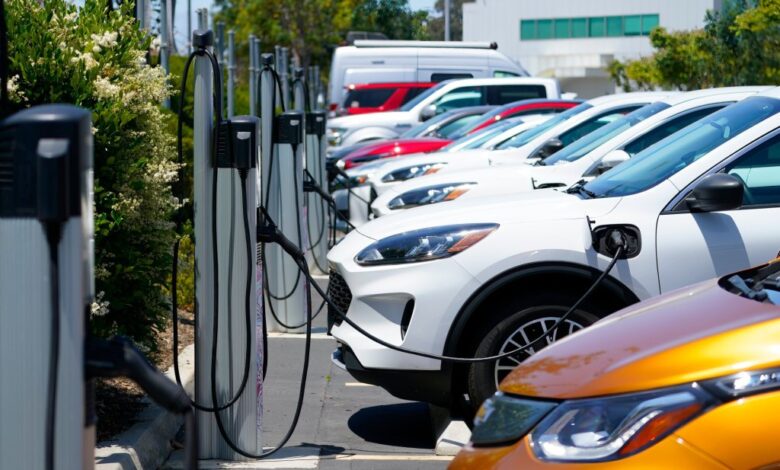The vanishing electric vehicle advantage – Daily News


I knew I was in trouble when I saw the white cloud of smog lurking behind my car after a long delay in the engine starting.
But I didn’t know just how bad things were till I heard the repairs were $4,500 and, oh by the way, the parts are backordered for two months.
Now I’m considering buying a new car and debating gas or electric.
But while I’ve long heard that electric vehicles are cheaper in the long run, the math is not adding up.
The theory is that though upfront costs are higher, EV “refueling” holds a major advantage of electric vehicles over their gas-powered counterparts. EVs do not require gasoline, which California has taxed and regulated into oblivion, sending prices soaring; instead they rely on electricity that costs less.
But those savings are rapidly deteriorating, especially for those of us who live in PG&E’s service area.
The California Air Resources Board estimates that the cost to recharge a Nissan LEAF, which has a listed 150-mile range, is $7 based on estimated electricity costs of $0.18 per kilowatt hour. Refueling a typical gas-powered car with a fuel economy rating of 25 miles per gallon requires consumers to spend $26 to purchase enough gas to drive approximately 150 miles.
Wow! According to CARB, it’s nearly four times more expensive to fill up with gas than electricity. Unfortunately, CARB’s analysis is more fiction than fact.
CARB estimates an average price per gallon of gasoline in California at $4.30, which is accurate enough, depending on the day. Because of taxes and onerous regulations, California has the highest gas prices in the nation.
But backwards state policies and corporate negligence are driving up the cost of electricity as well. Consequently, CARB’s estimated electricity costs of $0.18 per kilowatt hour not only understates California’s statewide average for cost per kWh by around 28%, but the estimate grossly understates peak pricing at PG&E, the largest power company in the state. Using CARB’s calculations, consumers charging their cars at peak pricing of $0.49 per kWh would spend $19 to recharge their EV.
Other factors would drive recharging prices even higher, like battery size, charging levels and price differences at charging stations.
The point is that it’s not inconceivable for a charge to soon be equal to or to exceed the cost of refueling with gasoline, though the cost of gasoline is rapidly rising as well. It’s a race to the top, and while we won’t know who will win, we know for sure it’ll be California drivers who lose.
It is also crucial for potential consumers to understand that CARB’s cost estimate to charge an EV is the best-case scenario. Ranges per charge will be lower than advertised because of driving patterns, climate controls, excessive outdoor temperatures and battery degradation. Accounting for all of these considerations, even if the costs to drive 150 miles in an EV are initially cheaper, there are no guarantees that this advantage will persist.
The erosion of the recharging advantage is a major problem for state policymakers, who have been desperately trying to boost the EV market for years now. If the refueling cost advantage goes away, there’s really no reason to buy an EV, setting aside personal preference and environmental benefits that, once the lifetime emissions of the vehicle are considered, are much less than advertised as well.
And to be sure, the upfront costs to owning an EV are substantial. The average purchase price for an EV is around $6,000 more expensive. Installing the in-home charging station could cost hundreds of dollars to a few thousand and that does nothing for people in garden-style apartments.
There are still some tax incentives and rebates available, but those are nothing more than giving tax-paying drivers some of their money back and getting their neighbors to chip in.
“All of these real world complexities demonstrate that the simple comparison EV proponents like to cite are not a realistic appraisal of the costs, convenience and value of EVs,” economist Wayne Winegarden, my colleague at Pacific Research Institute, said.
Of course, it’s making less sense to drive a gas-powered car too, also for the reasons stated above. If anything, this highlights the extreme short-sightedness of California policymakers in their quest to eliminate gas-powered anything and boost EVs.
California drivers are stuck between two bad options with escalating costs and policymakers continue to make matters worse.
Matt Fleming is a columnist for the Southern California News Group.




